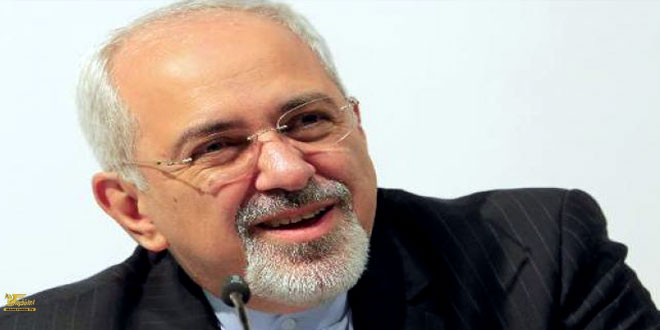THE WASHINGTON POST

By Jennifer Rubin
The Obama administration’s hint that it was considering allowing Iran to access directly or indirectly U.S. dollars drew furious, negative reaction from both sides of the aisle.
On Monday, Speaker Paul Ryan (R-Wis.) denounced the effort and called for the administration to reaffirm definitively its explicit promise that barriers to Iran’s accessing dollars would remain in place. “Our concern is that there are at least four workarounds to provide Iran with access to the dollar, including dollar-denominated transactions, dollar-clearing, dollar-based conversions, and dollar-related foreign currency transactions,” he said. “Here’s the bottom line: The administration should definitively rule out any potential workaround that provides Iran — directly or indirectly — with access to the dollar or the U.S. financial system.”
Tuesday, seeing the administration was not about to clear up matters, House Foreign Affairs Committee chairman Ed Royce (R-Calif.) announced introduction of legislation to prevent the administration from moving forward:
The bill, The U.S. Financial System Protection Act (H.R. 4992), codifies existing regulations that prohibit the administration from allowing the U.S. dollar to be used to facilitate trade transactions with Iran and upholds Iran’s designation as a “primary money laundering concern.” This covers direct dollar transactions and work-arounds including dollar-clearing, dollar-based conversions and dollar-related foreign currency transactions. These prohibitions, which were first levied against Iran nearly a decade ago in response to its support for terrorism, human rights abuses, money laundering and ballistic missiles program, would remain in place until the president certifies Iran is no longer engaging in these dangerous acts.
“If President Obama won’t rule out new concessions to the Iranian regime, Congress should, ” Royce argued. “Allowing a belligerent Iran access to the U.S. dollar poses real dangers to our country and our economy. Indeed, the Financial Action Task Force, an organization comprising nearly 40 nations, warned in February it remains ‘exceptionally concerned about Iran’s failure to address the risk of terrorist financing and the serious threat this poses’ to the world’s financial system.” One can imagine the bill will garner wide bipartisan support. Who — other than the desperate administration — wants to be for giving Iran access to dollar-based transactions?
“The Royce bill is a shot across the bow of the administration to make it clear powerful members of Congress will not stand for another unilateral concession to the Iranian regime,” sanctions guru and executive director of the Foundation for Defense of Democracies Mark Dubowitz tells Right Turn. “But it has an even more important target in the global financial sector with an even more important message: ‘If you dollarize Iranian transactions, you will find yourself on the wrong side of an enforcement or legal action. The Obama administration may protect you now but they’re gone in nine short months.’”
This blow-back comes on the heels of a weak letter from the administration imploring states not to engage in their own sanctions activity. As Eugene Kontorovich points out, “The Obama administration has been writing letters to all 50 state governors, urging them to reconsider economic sanctions they have against Iran. Almost half of U.S. states have adopted such measures, which were explicitly authorized by statute in the Comprehensive Iran Sanctions, Accountability, and Divestment Act of 2010 (CISADA).” He explains that while the Joint Comprehensive Plan of Action stated the administration was supposed to “actively encourage” states to pull back sanctions, in reality there is little it can do to force the issue. “The JCPOA is not a treaty, and thus cannot override statutes, like CISADA.” Therefore, Kontorovich concludes, “Unless he is merely hoping overworked state attorneys general are likely to blink first, President Obama is unlikely to push this matter further with the states. If he does, he is likely to lose on the state sanctions issue and may well open the door to a broader legal inquiry into the legal status of the Iran deal.”
What these developments highlight is that despite efforts to make his non-binding Iran deal binding, the president has no moral authority for a deal widely perceived as defective. Lacking the legal foundation of a treaty and popular support, the deal is more precarious than he might have imagined. If he attempts further concessions, he will be greeted by strong, bipartisan opposition. If he continues to shrug at new Iranian misconduct such as its ballistic missile tests, Congress will press for a response.
Whether he can keep Democratic lawmakers in line and prevent meaningful legislation remains in question. But his efforts to further weaken the U.S. position do not engender confidence on his own side. To the contrary, they help make the Republicans’ case that this was a deeply flawed deal by a president desperate to leave a “legacy” — and force his successors to deal with the consequences.
Hillary Clinton and the GOP front-runners should encourage Congress to hold the line on new concessions, reauthorize those due to expire and enact new ones in response to human rights violations, missile tests, state sponsorship of terrorism and regional aggression. The last thing the next president will want is a an even more emboldened Iran, convinced of the West’s fecklessness, with an even stronger economy. Getting Congress to hold the line on more concessions will be a full-time effort; getting it affirmatively to check Iran’s non-nuclear conduct will be a stretch, unless of course, Democrats perceive that continued defense of the White House and the JCPOA is a political loser.
 khalijefars News, Blogs, Art and Community
khalijefars News, Blogs, Art and Community








